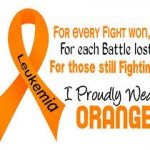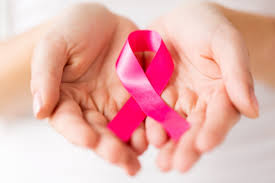
 Breast cancer can easily be termed to a global disease, meaning a disease that is prevalent all over the world. When it comes to India, it is one of the most common forms of cancer in urban cities and the second most common in rural areas. What makes breast cancer an area of concern is the fact that nearly 54% of women suffering from breast cancer are in the age of 25 to 50 years. Breast cancer can easily be tackled with a little awareness and screening. Mostly affecting women, there are some men also who may be diagnosed with breast cancer.
Breast cancer can easily be termed to a global disease, meaning a disease that is prevalent all over the world. When it comes to India, it is one of the most common forms of cancer in urban cities and the second most common in rural areas. What makes breast cancer an area of concern is the fact that nearly 54% of women suffering from breast cancer are in the age of 25 to 50 years. Breast cancer can easily be tackled with a little awareness and screening. Mostly affecting women, there are some men also who may be diagnosed with breast cancer.
How cancer occurs has been specifically dealt with in a separate article. But to discuss it in brief, cancer is a medical condition in which cells that are supposed to follow a normal pattern of growth and death do not adhere to it. The cells that are supposed to die do not die and continue to grow.
What is breast cancer?
Breast cancer is the most common invasive cancer prevailing in women the world over. The term ‘breast cancer’ refers to a tumor that is malignant and has developed from the cells in the breast. In most cases breast cancer begins either in the lobules (lobules are the milk producing glands) or in the ducts (passages responsible for transporting the milk to the nipple) and only in rare cases is it stromal meaning that involves the fibrous and fibrous tissue in the breast. Over a period of time, cancerous cells tend to attack healthy tissue in the nearby area and move on to the lymph nodes (small organs responsible for filtering foreign substance from the body).
Types of Breast Cancer
There are two types of breast cancer, invasive and non-invasive breast cancer. In invasive breast cancers the abnormal cells tend to reach the lymph nodes. They gradually reach the other organs like the bones and the lungs or even the liver. The abnormal cells (cancer cells) travel through the blood or the lymphatic system to reach the other parts of the body.
In the case of non-invasive breast cancer, the disease is limited to its original place. The cancer has not broken out from the original place. The term ‘in situ’ is used along with the location in order to specify the place where the cancer exists. In some cases it may also be termed as ‘pre-cancerous’ referring to abnormal cells that have not spread but can spread. This means that non-invasive cancers can easily convert to invasive cancers.
Breast Cancer and Risk Factors
 Nearly 90% of breast cancer can be attributed to genetic abnormalities which are the result of aging process. What raises the alarm with respect to breast cancer is that is becoming highly prevalent in the case of young women.
Nearly 90% of breast cancer can be attributed to genetic abnormalities which are the result of aging process. What raises the alarm with respect to breast cancer is that is becoming highly prevalent in the case of young women.
Perception of risk varies from person to person. Risk factor is anything that increases the chances of a person to get a disease. Please remember, that prevalence of one or more than one risk factors means that the woman will definitely will get cancer. Some of the risk factors can be-
– Personal history of breast cancer;
– The risk of breast cancer increases with age;
– Family history meaning a case reported in the first degree relatives while cases of distant family history are at a moderate risk;
– Genetics;
– An earlier abnormal biopsy indicating towards benign breast conditions like fibrosis, and hyperalsia etc.;
– Undergoing a pregnancy after 35 years of age or not having children at all;
– Starting menstrual cycle before the age of 12 and reaching menopause late i.e., after the age of 55;
– Being overweight;
– Having been exposed to excessive radiation;
– Women receiving combined Hormone Replacement Therapy (Estrogen and Progesterone)
Can breast cancer be avoided?
There is no sure shot answer for this for there is no sure shot way of preventing cancer. There is no doubt about the fact that there are certain things that be done in order to reduce the risk of breast cancer. Adopting these methods can also ensure early detection which again makes the cancer more treatable.
Watching your body weight, adopting an active lifestyle, avoiding or limiting the intake of alchol all help a long way in reducing the risk of cancer. In addition to these opting for a plant based diet, breastfeeding and not opting to use HRT after menopause goes a long way in avoiding raising the risk.
While regular screening is essential, genetic testing also goes a long way in reducing the risk. Women with high risk of cancer may also be recommended preventive surgery to reduce the risk. It is important to understand the enormity of this menace and no point denying or ignoring the fact that being a woman makes me susceptible and little awareness and timely screening can save me. It is best summarized in the words of Debbie Wasserman Schultz (An American Politician)
“I have to admit, like so many women, I always knew there was a chance. But like so many women, I never thought it would be me. I never thought I’d hear those devastating words: ‘You have breast cancer.’”
References:
http://www.cancer.org/cancer/breastcancer/index










